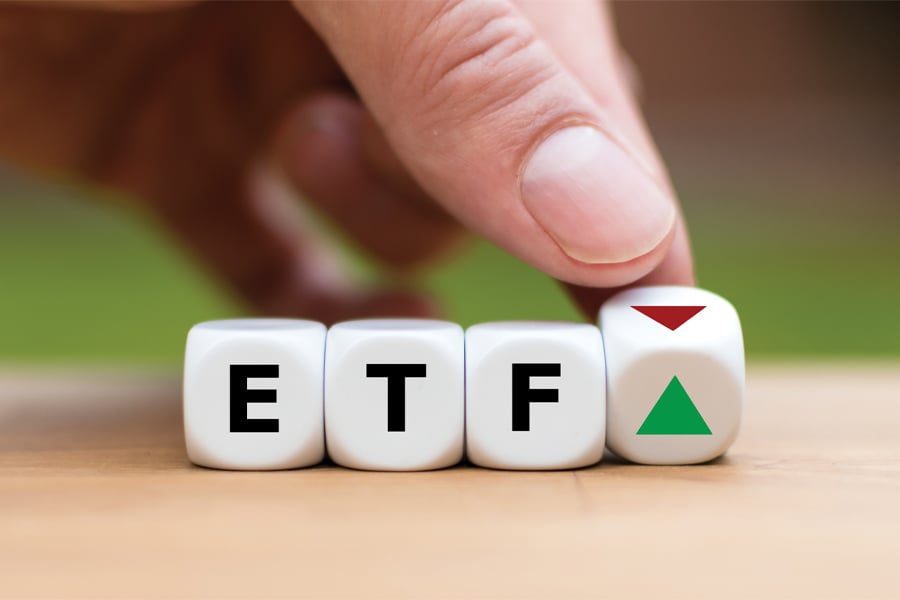

Several leveraged single-stock exchange-traded funds that gained attention during last year’s equity rally have seen sharp declines in recent weeks, raising concerns about investor understanding of their risk profiles.
The performance swing highlights the volatility built into these funds, which use derivatives and borrowing to magnify daily price moves of underlying securities.
As reported by the Wall Street Journal, products offering amplified exposure to high-profile companies such as MicroStrategy and Tesla have lost between 80 and 83 percent of their value since peaking in November.
Competing MicroStrategy-focused funds launched by Defiance ETFs and Tuttle Capital Management saw their prices surge more than tenfold between September and November, reeling in billions of dollars from investors along the way.
Since then, they've reversed course: while the funds remain up from their launch price, Morningstar estimates that investors are collectively sitting on losses of about $1.7 billion due to the timing of inflows.
“It is like a thresher,” Morningstar analyst Jeffrey Ptak told the Journal. “Money goes in and it doesn’t come out.”
Leveraged single-stock ETFs debuted in the US in 2022, after gaining approval from regulators. Unlike traditional leveraged ETFs that offer exposure to broad indexes, these newer vehicles track individual equities – opening investors in them up to substantially greater concentration risks – and are typically marketed to short-term traders.
Despite warnings from fund issuers that these products are not intended for long-term holdings, their popularity has grown. According to Morningstar, total assets in leveraged ETFs increased 51 percent year over year, reaching $134 billion at the end of January.
“These products have become very popular, to a worrisome extent,” Ptak said.
The funds are part of a larger trend toward complex exchange-traded strategies. A January analysis from CFRA showed that 40 percent of all ETFs listed in the US in 2024 have derivatives as a central component of their strategy, double the share from 2014. Leveraged and inverse ETFs now make up about one-third of all derivatives-based equity ETFs, while leveraged single-stock products represent 9 percent.
The top three single-stock leveraged funds – tracking Nvidia, Tesla, and MicroStrategy – have been especially popular with retail traders, many of whom were drawn by social media hype and short-term performance.
Even during steep drops, retail traders can all too quickly pile into the strategies in a bid to amp up hoped-for gains from dip-buying. During the DeepSeek-induced January selloff in tech stocks, which saw stock market darling Nvidia lose nearly $600 billion of its market cap evaporate in one day, traders shoved $1 billion into the GraniteShares 2x Long NVDA Daily ETF, representing the fund's biggest single-day inflow record.
But the more recent reversal highlights the challenge of timing such volatile investments. Fund managers and analysts continue to warn that while gains can be dramatic in rising markets, the losses can be equally severe in a downturn, especially for those who do not actively manage their positions.
“Investors may not fully appreciate how quickly or severely leveraged funds’ performance can veer off course,” Ptak said.

For service-focused financial advisors who might take their well-being for granted, regular check-ins and active listening from the top can provide a powerful recharge.

With Parkworth Wealth Management and its Silicon Valley tech industry client base now onboard, Savant accelerates its vision of housing 10 to 12 specialty practices under its national RIA.

Meanwhile, $34 billion independent First Manhattan welcomed New Jersey-based Roanoke Asset Management, an RIA firm with more than 40 years of history.

Most notably, two chief compliance officers have also recently left the firm.

The latest team to join Cetera, led by a 29-year veteran professional, arrives with roughly $380 million in AUA from OSJ Private Advisor Group.
Orion's Tom Wilson on delivering coordinated, high-touch service in a world where returns alone no longer set you apart.
Barely a decade old, registered index-linked annuities have quickly surged in popularity, thanks to their unique blend of protection and growth potential—an appealing option for investors looking to chart a steadier course through today's choppy market waters, says Myles Lambert, Brighthouse Financial.
